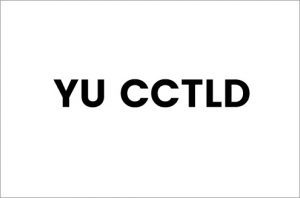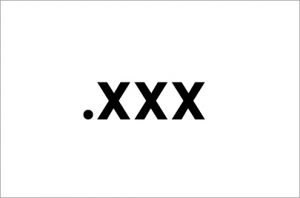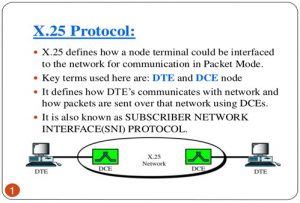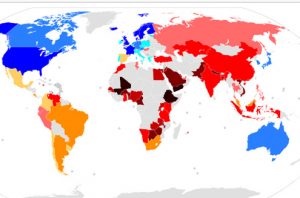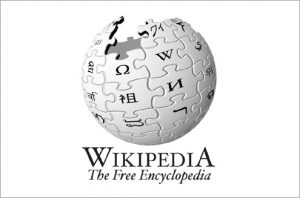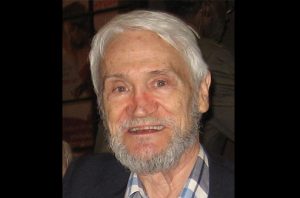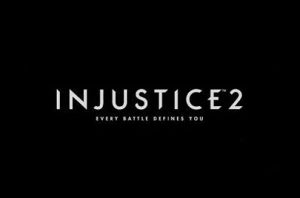Wikipedia is a free online encyclopedia that, by default, allows its users to edit any article. Wikipedia is the largest and most popular general reference work on the Internet and is ranked among the ten most popular websites. Wikipedia is owned by the nonprofit Wikimedia Foundation.
Wikipedia was launched on January 15, 2001, by Jimmy Wales and Larry Sanger. Sanger coined its name, a portmanteau of wiki and encyclopedia. There was only the English language version initially, but it quickly developed similar versions in other languages, which differ in content and in editing practices. With 5,294,660 articles, the English Wikipedia is the largest of the more than 290 Wikipedia encyclopedias. Overall, Wikipedia consists of more than 40 million articles in more than 250 different languages and as of February 2014, it had 18 billion page views and nearly 500 million unique visitors each month.
In 2005, Nature published a peer review comparing 42 science articles from Encyclopædia Britannica and Wikipedia, and found that Wikipedia’s level of accuracy approached Encyclopædia Britannica’s. Criticism of Wikipedia includes claims that it exhibits systemic bias, presents a mixture of “truths, half truths, and some falsehoods”, and that in controversial topics, it is subject to manipulation and spin.
History
Nupedia
Logo reading “Nupedia.com the free encyclopedia” in blue with large initial “N”
Wikipedia originally developed from another encyclopedia project called Nupedia
Other collaborative online encyclopedias were attempted before Wikipedia, but none were so successful.
Wikipedia began as a complementary project for Nupedia, a free online English-language encyclopedia project whose articles were written by experts and reviewed under a formal process. Nupedia was founded on March 9, 2000, under the ownership of Bomis, a web portal company. Its main figures were the Bomis CEO Jimmy Wales and Larry Sanger, editor-in-chief for Nupedia and later Wikipedia. Nupedia was licensed initially under its own Nupedia Open Content License, switching to the GNU Free Documentation License before Wikipedia’s founding at the urging of Richard Stallman. Sanger and Wales founded Wikipedia. While Wales is credited with defining the goal of making a publicly editable encyclopedia, Sanger is credited with the strategy of using a wiki to reach that goal. On January 10, 2001, Sanger proposed on the Nupedia mailing list to create a wiki as a “feeder” project for Nupedia.
Launch and early growth
Wikipedia was launched on January 15, 2001, as a single English-language edition at www.wikipedia.com, and announced by Sanger on the Nupedia mailing list. Wikipedia’s policy of “neutral point-of-view” was codified in its first months. Otherwise, there were relatively few rules initially and Wikipedia operated independently of Nupedia. Originally, Bomis intended to make Wikipedia a business for profit.
Wikipedia gained early contributors from Nupedia, Slashdot postings, and web search engine indexing. By August 8, 2001, Wikipedia had over 8,000 articles. On September 25, 2001, Wikipedia had over 13,000 articles. By the end of 2001, it had grown to approximately 20,000 articles and 18 language editions. It had reached 26 language editions by late 2002, 46 by the end of 2003, and 161 by the final days of 2004. Nupedia and Wikipedia coexisted until the former’s servers were taken down permanently in 2003, and its text was incorporated into Wikipedia. The English Wikipedia passed the mark of two million articles on September 9, 2007, making it the largest encyclopedia ever assembled, surpassing even the 1408 Yongle Encyclopedia, which had held the record for almost 600 years.
Citing fears of commercial advertising and lack of control in Wikipedia, users of the Spanish Wikipedia forked from Wikipedia to create the Enciclopedia Libre in February 2002. These moves encouraged Wales to announce that Wikipedia would not display advertisements, and to change Wikipedia’s domain from wikipedia.com to wikipedia.org.
Though the English Wikipedia reached three million articles in August 2009, the growth of the edition, in terms of the numbers of articles and of contributors, appears to have peaked around early 2007. Around 1,800 articles were added daily to the encyclopedia in 2006; by 2013 that average was roughly 800. A team at the Palo Alto Research Center attributed this slowing of growth to the project’s increasing exclusivity and resistance to change. Others suggest that the growth is flattening naturally because articles that could be called “low-hanging fruit”—topics that clearly merit an article—have already been created and built up extensively.
In November 2009, a researcher at the Rey Juan Carlos University in Madrid (Spain) found that the English Wikipedia had lost 49,000 editors during the first three months of 2009; in comparison, the project lost only 4,900 editors during the same period in 2008. The Wall Street Journal cited the array of rules applied to editing and disputes related to such content among the reasons for this trend. Wales disputed these claims in 2009, denying the decline and questioning the methodology of the study. Two years later, Wales acknowledged the presence of a slight decline, noting a decrease from “a little more than 36,000 writers” in June 2010 to 35,800 in June 2011. In the same interview, Wales also claimed the number of editors was “stable and sustainable”, a claim which was questioned by MIT’s Technology Review in a 2013 article titled “The Decline of Wikipedia”. In July 2012, the Atlantic reported that the number of administrators is also in decline. In the November 25, 2013, issue of New York magazine, Katherine Ward stated “Wikipedia, the sixth-most-used website, is facing an internal crisis. In 2013, MIT’s Technology Review revealed that since 2007, the site has lost a third of the volunteer editors who update and correct the online encyclopedia’s millions of pages and those still there have focused increasingly on minutiae.”
Recent milestones
In January 2007, Wikipedia entered for the first time the top-ten list of the most popular websites in the United States, according to comScore Networks. With 42.9 million unique visitors, Wikipedia was ranked number 9, surpassing the New York Times and Apple . This marked a significant increase over January 2006, when the rank was number 33, with Wikipedia receiving around 18.3 million unique visitors. As of March 2015, Wikipedia has rank 6 among websites in terms of popularity according to Alexa Internet. In 2014, it received 8 billion pageviews every month. On February 9, 2014, The New York Times reported that Wikipedia has 18 billion page views and nearly 500 million unique visitors a month, “according to the ratings firm comScore.”
On January 18, 2012, the English Wikipedia participated in a series of coordinated protests against two proposed laws in the United States Congress—the Stop Online Piracy Act (SOPA) and the PROTECT IP Act (PIPA)—by blacking out its pages for 24 hours. More than 162 million people viewed the blackout explanation page that temporarily replaced Wikipedia content.
Loveland and Reagle argue that, in process, Wikipedia follows a long tradition of historical encyclopedias that accumulated improvements piecemeal through “stigmergic accumulation”.
On January 20, 2014, Subodh Varma reporting for The Economic Times indicated that not only had Wikipedia’s growth flattened but that it has “lost nearly 10 per cent of its page-views last year. That’s a decline of about 2 billion between December 2012 and December 2013. Its most popular versions are leading the slide: page-views of the English Wikipedia declined by 12 per cent, those of German version slid by 17 per cent and the Japanese version lost 9 per cent.” Varma added that, “While Wikipedia’s managers think that this could be due to errors in counting, other experts feel that Google’s Knowledge Graphs project launched last year may be gobbling up Wikipedia users.” When contacted on this matter, Clay Shirky, associate professor at New York University and fellow at Harvard’s Berkman Center for Internet and Security indicated that he suspected much of the page view decline was due to Knowledge Graphs, stating, “If you can get your question answered from the search page, you don’t need to click .”
Openness
Unlike traditional encyclopedias, Wikipedia follows the procrastination principle regarding the security of its content. It started almost entirely open—anyone could create articles, and any Wikipedia article could be edited by any reader, even those who did not have a Wikipedia account. Modifications to all articles would be published immediately. As a result, any article could contain inaccuracies such as errors, ideological biases, and nonsensical or irrelevant text.
Restrictions
Due to the increasing popularity of Wikipedia, popular editions, including the English version, have introduced editing restrictions in some cases. For instance, on the English Wikipedia and some other language editions, only registered users may create a new article. On the English Wikipedia, among others, some particularly controversial, sensitive and/or vandalism-prone pages have been protected to some degree. A frequently vandalized article can be semi-protected, meaning that only autoconfirmed editors are able to modify it. A particularly contentious article may be locked so that only administrators are able to make changes.
In certain cases, all editors are allowed to submit modifications, but review is required for some editors, depending on certain conditions. For example, the German Wikipedia maintains “stable versions” of articles, which have passed certain reviews. Following protracted trials and community discussion, the English Wikipedia introduced the “pending changes” system in December 2012. Under this system, new users’ edits to certain controversial or vandalism-prone articles are “subject to review from an established Wikipedia editor before publication”.
Review of changes
Although changes are not systematically reviewed, the software that powers Wikipedia provides certain tools allowing anyone to review changes made by others. The “History” page of each article links to each revision. On most articles, anyone can undo others’ changes by clicking a link on the article’s history page. Anyone can view the latest changes to articles, and anyone may maintain a “watchlist” of articles that interest them so they can be notified of any changes. “New pages patrol” is a process whereby newly created articles are checked for obvious problems.
In 2003, economics PhD student Andrea Ciffolilli argued that the low transaction costs of participating in a wiki create a catalyst for collaborative development, and that features such as allowing easy access to past versions of a page favor “creative construction” over “creative destruction”.
Vandalism
Any edit that changes content in a way that deliberately compromises the integrity of Wikipedia is considered vandalism. The most common and obvious types of vandalism include insertion of obscenities and crude humor. Vandalism can also include advertising language and other types of spam. Sometimes editors commit vandalism by removing information or entirely blanking a given page. Less common types of vandalism, such as the deliberate addition of plausible but false information to an article, can be more difficult to detect. Vandals can introduce irrelevant formatting, modify page semantics such as the page’s title or categorization, manipulate the underlying code of an article, or use images disruptively. Obvious vandalism is generally easy to remove from Wikipedia articles; the median time to detect and fix vandalism is a few minutes. However, some vandalism takes much longer to repair.
In the Seigenthaler biography incident, an anonymous editor introduced false information into the biography of American political figure John Seigenthaler in May 2005. Seigenthaler was falsely presented as a suspect in the assassination of John F. Kennedy. The article remained uncorrected for four months. Seigenthaler, the founding editorial director of USA Today and founder of the Freedom Forum First Amendment Center at Vanderbilt University, called Wikipedia co-founder Jimmy Wales and asked whether he had any way of knowing who contributed the misinformation. Wales replied that he did not, although the perpetrator was eventually traced. After the incident, Seigenthaler described Wikipedia as “a flawed and irresponsible research tool”. This incident led to policy changes at Wikipedia, specifically targeted at tightening up the verifiability of biographical articles of living people.
Accuracy of content
Articles for traditional encyclopedias such as Encyclopædia Britannica are carefully and deliberately written by experts, lending such encyclopedias a reputation for accuracy. Conversely, Wikipedia is often cited for factual inaccuracies and misrepresentations. However, a peer review in 2005 of forty-two scientific entries on both Wikipedia and Encyclopædia Britannica by the science journal Nature found few differences in accuracy, and concluded that “the average science entry in Wikipedia contained around four inaccuracies; Britannica, about three.” Reagle suggested that while the study reflects “a topical strength of Wikipedia contributors” in science articles, “Wikipedia may not have fared so well using a random sampling of articles or on humanities subjects.” The findings by Nature were disputed by Encyclopædia Britannica, and in response, Nature gave a rebuttal of the points raised by Britannica. In addition to the point-for-point disagreement between these two parties, others have examined the sample size and selection method used in the Nature effort, and suggested a “flawed study design” (in Nature’s manual selection of articles, in part or in whole, for comparison), absence of statistical analysis (e.g., of reported confidence intervals), and a lack of study “statistical power” (i.e., owing to small sample size, 42 or 4 x 101 articles compared, vs >105 and >106 set sizes for Britannica and the English Wikipedia, respectively).
As a consequence of the open structure, Wikipedia “makes no guarantee of validity” of its content, since no one is ultimately responsible for any claims appearing in it. Concerns have been raised by PC World in 2009 regarding the lack of accountability that results from users’ anonymity, the insertion of false information, vandalism, and similar problems.
Economist Tyler Cowen wrote: “If I had to guess whether Wikipedia or the median refereed journal article on economics was more likely to be true, after a not so long think I would opt for Wikipedia.” He comments that some traditional sources of non-fiction suffer from systemic biases and novel results, in his opinion, are over-reported in journal articles and relevant information is omitted from news reports. However, he also cautions that errors are frequently found on Internet sites, and that academics and experts must be vigilant in correcting them.
Critics argue that Wikipedia’s open nature and a lack of proper sources for most of the information makes it unreliable. Some commentators suggest that Wikipedia may be reliable, but that the reliability of any given article is not clear. Editors of traditional reference works such as the Encyclopædia Britannica have questioned the project’s utility and status as an encyclopedia. Wikipedia’s open structure inherently makes it an easy target for Internet trolls, spammers, and various forms of paid advocacy seen as counterproductive to the maintenance of a neutral and verifiable online encyclopedia. In response to paid advocacy editing and undisclosed editing issues, Wikipedia was reported in an article by Jeff Elder in The Wall Street Journal on June 16, 2014, to have strengthened its rules and laws against undisclosed editing. The article stated that: “Beginning Monday [from date of article], changes in Wikipedia’s terms of use will require anyone paid to edit articles to disclose that arrangement. Katherine Maher, the nonprofit Wikimedia Foundation’s chief communications officer, said the changes address a sentiment among volunteer editors that, ‘we’re not an advertising service; we’re an encyclopedia.’” These issues, among others, had been parodied since the first decade of Wikipedia, notably by Stephen Colbert on The Colbert Report.
Most university lecturers discourage students from citing any encyclopedia in academic work, preferring primary sources; some specifically prohibit Wikipedia citations. Wales stresses that encyclopedias of any type are not usually appropriate to use as citeable sources, and should not be relied upon as authoritative. Wales once (2006 or earlier) said he receives about ten emails weekly from students saying they got failing grades on papers because they cited Wikipedia; he told the students they got what they deserved. “For God’s sake, you’re in college; don’t cite the encyclopedia”, he said.
In February 2007, an article in The Harvard Crimson newspaper reported that a few of the professors at Harvard University were including Wikipedia articles in their syllabi, although without realizing the articles might change. In June 2007, former president of the American Library Association Michael Gorman condemned Wikipedia, along with Google, stating that academics who endorse the use of Wikipedia are “the intellectual equivalent of a dietitian who recommends a steady diet of Big Macs with everything”.
A Harvard law textbook, Legal Research in a Nutshell (2011), cites Wikipedia as a “general source” that “can be a real boon” in “coming up to speed in the law governing a situation” and, “while not authoritative, can provide basic facts as well as leads to more in-depth resources”.
Quality of writing
In 2008, researchers at Carnegie Mellon University found that the quality of a Wikipedia article would suffer rather than gain from adding more writers when the article lacked appropriate explicit or implicit coordination. For instance, when contributors rewrite small portions of an entry rather than making full-length revisions, high- and low-quality content may be intermingled within an entry. Roy Rosenzweig, a history professor, stated that American National Biography Online outperformed Wikipedia in terms of its “clear and engaging prose”, which, he said, was an important aspect of good historical writing. Contrasting Wikipedia’s treatment of Abraham Lincoln to that of Civil War historian James McPherson in American National Biography Online, he said that both were essentially accurate and covered the major episodes in Lincoln’s life, but praised “McPherson’s richer contextualization his artful use of quotations to capture Lincoln’s voice and his ability to convey a profound message in a handful of words.” By contrast, he gives an example of Wikipedia’s prose that he finds “both verbose and dull”. Rosenzweig also criticized the “waffling—encouraged by the npov policy— means that it is hard to discern any overall interpretive stance in Wikipedia history”. By example, he quoted the conclusion of Wikipedia’s article on William Clarke Quantrill. While generally praising the article, he pointed out its “waffling” conclusion: “Some historians remember him as an opportunistic, bloodthirsty outlaw, while others continue to view him as a daring soldier and local folk hero.”
Other critics have made similar charges that, even if Wikipedia articles are factually accurate, they are often written in a poor, almost unreadable style. Frequent Wikipedia critic Andrew Orlowski commented: “Even when a Wikipedia entry is 100 per cent factually correct, and those facts have been carefully chosen, it all too often reads as if it has been translated from one language to another then into to a third, passing an illiterate translator at each stage.” A study of articles on cancer was undertaken in 2010 by Yaacov Lawrence of the Kimmel Cancer Center at Thomas Jefferson University limited to those Wikipedia articles which could be found in the Physician Data Query and excluding Wikipedia articles written at the “start” class or the “stub” class level. Lawrence found the articles accurate but not very readable, and thought that “Wikipedia’s lack of readability (to non-college readers) may reflect its varied origins and haphazard editing”. The Economist argued that better-written articles tend to be more reliable: “inelegant or ranting prose usually reflects muddled thoughts and incomplete information”.



